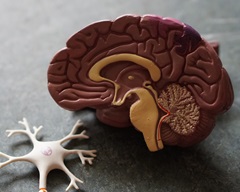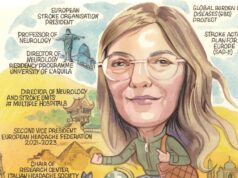 Neurological conditions now affect more than 40% of the worldwide population—over three billion people—according to the World Health Organization’s (WHO) Global Status Report on Neurology, which was recently released at the World Congress of Neurology (WCN; 12–15 October, Seoul, South Korea).
Neurological conditions now affect more than 40% of the worldwide population—over three billion people—according to the World Health Organization’s (WHO) Global Status Report on Neurology, which was recently released at the World Congress of Neurology (WCN; 12–15 October, Seoul, South Korea).
The report reveals that neurological conditions affect roughly one in three people, with more than 80% of this burden being in low- and middle-income countries. However, despite this prevalence, too few countries have a standalone or integrated policy on neurology, only a minority include neurological services in universal health coverage (UHC) benefit packages, and workforce shortages remain profound—necessitating task sharing and primary care strengthening to close treatment gaps, as noted in a World Federation of Neurology (WFN) press release.
“The science is clear and the path is practical,” said the WHO’s Tarun Dua. “If countries embed brain health in universal coverage, strengthen primary care, ensure access to essential medicines, reduce stigma, and invest in data systems, we can measurably improve lives, especially in settings where the need is greatest.”
Addressing delegates live at WCN 2025, Dua called for an accelerated, society-wide push to make brain health a policy priority in every country. Framing brain health as an essential pillar of public health, she urged neurologists, policymakers and partners to align on integrated strategies that move care “from fragmented to coordinated”, and from urban specialty settings to strong, community-based primary care.
The report further outlines the urgency and opportunity for advancement in brain health on a global scale—including the key role the WFN and its membership organisations play in brain health research and advocacy worldwide.
“The significance of the WHO announcement coming from the World Congress of Neurology underscores the importance of neurologists playing an active role in brain health advocacy worldwide,” commented WFN president Wolfgang Grisold (University of Vienna, Vienna, Austria). “With the rising prevalence of neurological conditions, we are committed to working with the WHO on real solutions, including supporting neurologists in advocacy work, in addition to training programmes to help combat the severe lack of qualified health professionals, particularly in low-income countries.”
According to the recent press release, the WHO’s Intersectoral Global Action Plan (IGAP) on Epilepsy and Other Neurological Disorders, and brain health framework, are “the scaffolding for rapid progress”. Implementation pathways—including the WHO’s IGAP toolkit, which was developed with partners including the WFN—are already enabling progress. Case examples span policy and coordination in Moldova, medicine access gains in Tanzania, and lived experience-led road mapping in South Africa, illustrating how national societies, ministries of health and patient groups can translate a global plan into local results, the WFN states.
“This is not a siloed agenda; it’s an integrated public health imperative,” Dua added.









